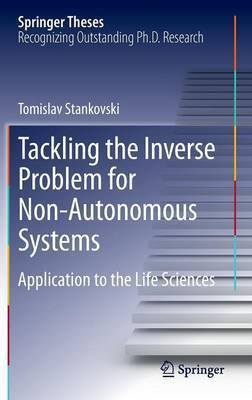Tackling the Inverse Problem for Non-Autonomous Systems(English, Hardcover, Stankovski Tomislav)
Quick Overview
Product Price Comparison
This thesis presents a new method for following evolving interactions between coupled oscillatory systems of the kind that abound in nature. Examples range from the subcellular level, to ecosystems, through climate dynamics, to the movements of planets and stars. Such systems mutually interact, adjusting their internal clocks, and may correspondingly move between synchronized and non-synchronized states. The thesis describes a way of using Bayesian inference to exploit the presence of random fluctuations, thus analyzing these processes in unprecedented detail. It first develops the basic theory of interacting oscillators whose frequencies are non-constant, and then applies it to the human heart and lungs as an example. Their coupling function can be used to follow with great precision the transitions into and out of synchronization. The method described has the potential to illuminate the ageing process as well as to improve diagnostics in cardiology, anesthesiology and neuroscience, and yields insights into a wide diversity of natural processes.


